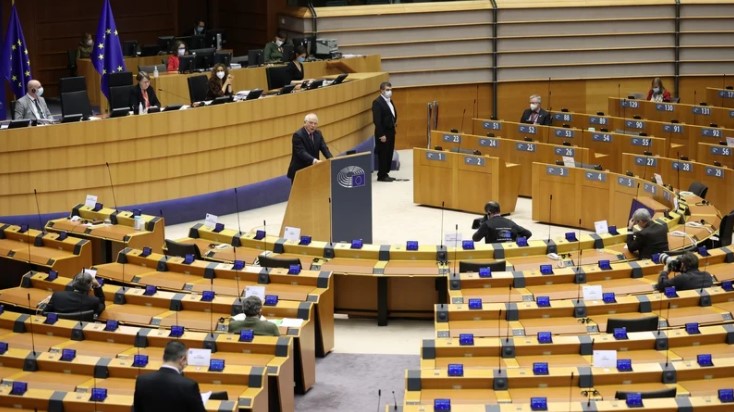EU foreign policy chief Josep Borrell said Tuesday he will propose the bloc's 27 member states impose sanctions on Russia after Moscow rebuffed his attempts to renew a dialogue.
-It will be for the member states to decide the next step, but yes this could include sanctions and I will put forward concrete proposals- Borrell told lawmakers at the European Parliament.
A number of eastern European countries have called for punitive measures to be slapped on Russia over the jailing of top Kremlin critic Alexei Navalny and a crackdown on protesters.
EU foreign ministers are set to discuss the issue at their next meeting on February 22.
Borrell addressed legislators after a chastening visit to Russia last week, during which the Kremlin expelled three European diplomats.
Despite opposition from some capitals, the former Spanish minister insisted on making the trip to confront the Kremlin over Navalny and sound it out over cooperation on other issues.
-I had no illusion before the visit, I am even more worried after- Borrell told lawmakers.
-One thing became clear, there is no intention on the Russian side to engage in a constructive discussion if we address human rights and political freedom.-
Borrell has drawn flak for his performance during the visit -- the first by a top EU envoy to Moscow since 2017 -- as he failed to counter a slew of criticism from counterpart Sergei Lavrov at a press conference.
Dozens of lawmakers signed a letter calling for his resignation over the "humiliating" trip.
The EU's relations with Moscow have been in the doldrums since the Kremlin annexed Crimea in 2014 and began fuelling the war in Ukraine.
The bloc hit six senior Russian officials with asset freezes and visa bans in October over the poisoning of Navalny with a nerve agent.
Navalny has accused the President Vladimir Putin of ordering the attack -- something the Kremlin has repeatedly denied.
Putin's most prominent domestic opponent was sentenced to almost three years in jail after returning to Russia last month following treatment in Germany.
